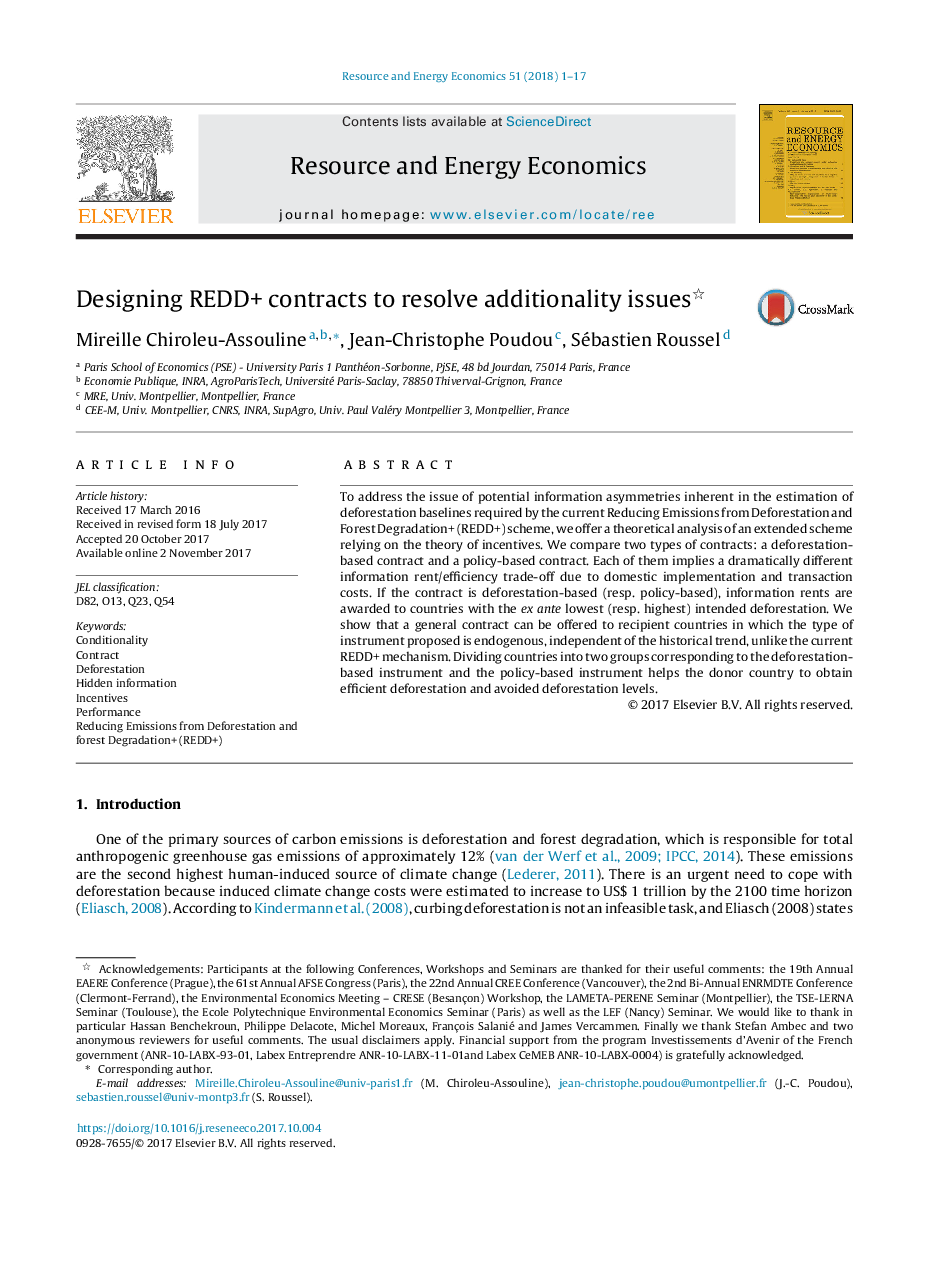| Article ID | Journal | Published Year | Pages | File Type |
|---|---|---|---|---|
| 7387446 | Resource and Energy Economics | 2018 | 17 Pages |
Abstract
To address the issue of potential information asymmetries inherent in the estimation of deforestation baselines required by the current Reducing Emissions from Deforestation and Forest Degradation+ (REDD+) scheme, we offer a theoretical analysis of an extended scheme relying on the theory of incentives. We compare two types of contracts: a deforestation-based contract and a policy-based contract. Each of them implies a dramatically different information rent/efficiency trade-off due to domestic implementation and transaction costs. If the contract is deforestation-based (resp. policy-based), information rents are awarded to countries with the ex ante lowest (resp. highest) intended deforestation. We show that a general contract can be offered to recipient countries in which the type of instrument proposed is endogenous, independent of the historical trend, unlike the current REDD+ mechanism. Dividing countries into two groups corresponding to the deforestation-based instrument and the policy-based instrument helps the donor country to obtain efficient deforestation and avoided deforestation levels.
Related Topics
Physical Sciences and Engineering
Energy
Energy (General)
Authors
Mireille Chiroleu-Assouline, Jean-Christophe Poudou, Sébastien Roussel,
